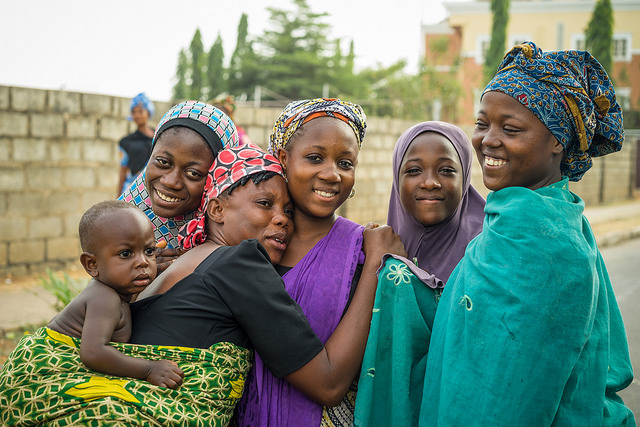Nigeria, Africa’s largest democracy is one of the worst places globally for pregnant women.-at least 82,000 women die annually from pregnancy related complications, and many more people facing challenges with access to sexual and reproductive health and rights information.
The United Nations in Nigeria has underscored the crucial need for universal access to sexual and reproductive healthcare services as part of its agenda, the Sustainable Development Goals (SDGs) by 2030. With recommendation for collaborative efforts among various stakeholders to implement effective family planning measures, enhance information and education to integrate reproductive health into national strategies and programs.
In line with these global goals, significant strides are under way in Nigeria to address these issues. Notably, Mercy Oiza Aiyedun, Nguvu change leader, has launched a campaign to advance reproductive health services for young people.
Her petition, calls on the Minister of Health and the Chairman of the National Primary Health Care Development Agency or NPHCDA to prioritise the implementation of the National Guidelines for integrating adolescent and youth-friendly services into Primary Health Care facilities across Nigeria.
“Despite having some of the most progressive policies in the region, Nigeria has struggled with the actual implementation of these guidelines. The goal of my campaign is to ensure these policies are implemented both at the sub-national and national levels within the country , which would encourage better health-seeking behaviours among youths, and empower them with adequate knowledge and skills for their protection. It will also help to reduce the risk of life-threatening conditions such as permanent damage to vital reproductive organs, contracting STIs, unwanted pregnancies and unsafe abortions,” says Mercy Oiza Aiyedun.
She shared a poignant story about a friend who endured significant trauma to illustrate the pressing need for improved awareness among the youth. This friend, a shy and introverted teenager, suffered from reproductive health issues such as vaginitis and urinary tract infections due to poor sanitation in her overcrowded living environment. Hindered by the stigma surrounding private matters, she suffered in silence and resorted to self-medication, leading to recurrent infections. Only as an adult, she realised that her infertility resulted from untreated infections that had caused blockages in her fallopian tubes.
“There are countless similar instances happening to adolescents across Nigeria, highlighting the urgency for a comprehensive approach to addressing these challenges stemming from insufficient information. I hope to rally more supporters for this campaign and garner additional signatures for the petition,” Mercy Oiza Aiyedun concluded.
Nigeria, Africa's largest democracy, faces significant challenges regarding maternal health, with over 82,000 women dying annually from pregnancy-related complications. The United Nations emphasizes the urgent need for universal access to sexual and reproductive healthcare, aligning with the Sustainable Development Goals (SDGs) by 2030.
Efforts are underway in Nigeria to address these issues, including a campaign by Mercy Oiza Aiyedun, a Nguvu change leader, advocating for improved reproductive health services for young people. Her petition urges the implementation of the National Guidelines for integrating adolescent and youth-friendly services into Primary Health Care facilities across Nigeria, aiming to enhance health-seeking behaviors among youths and reduce risks like STIs, unwanted pregnancies, and unsafe abortions.
Mercy highlighted the plight of a friend who suffered infertility due to untreated reproductive health issues stemming from poor living conditions and lack of awareness. Her story underscores the need for better education and awareness among adolescents to prevent similar tragedies.






